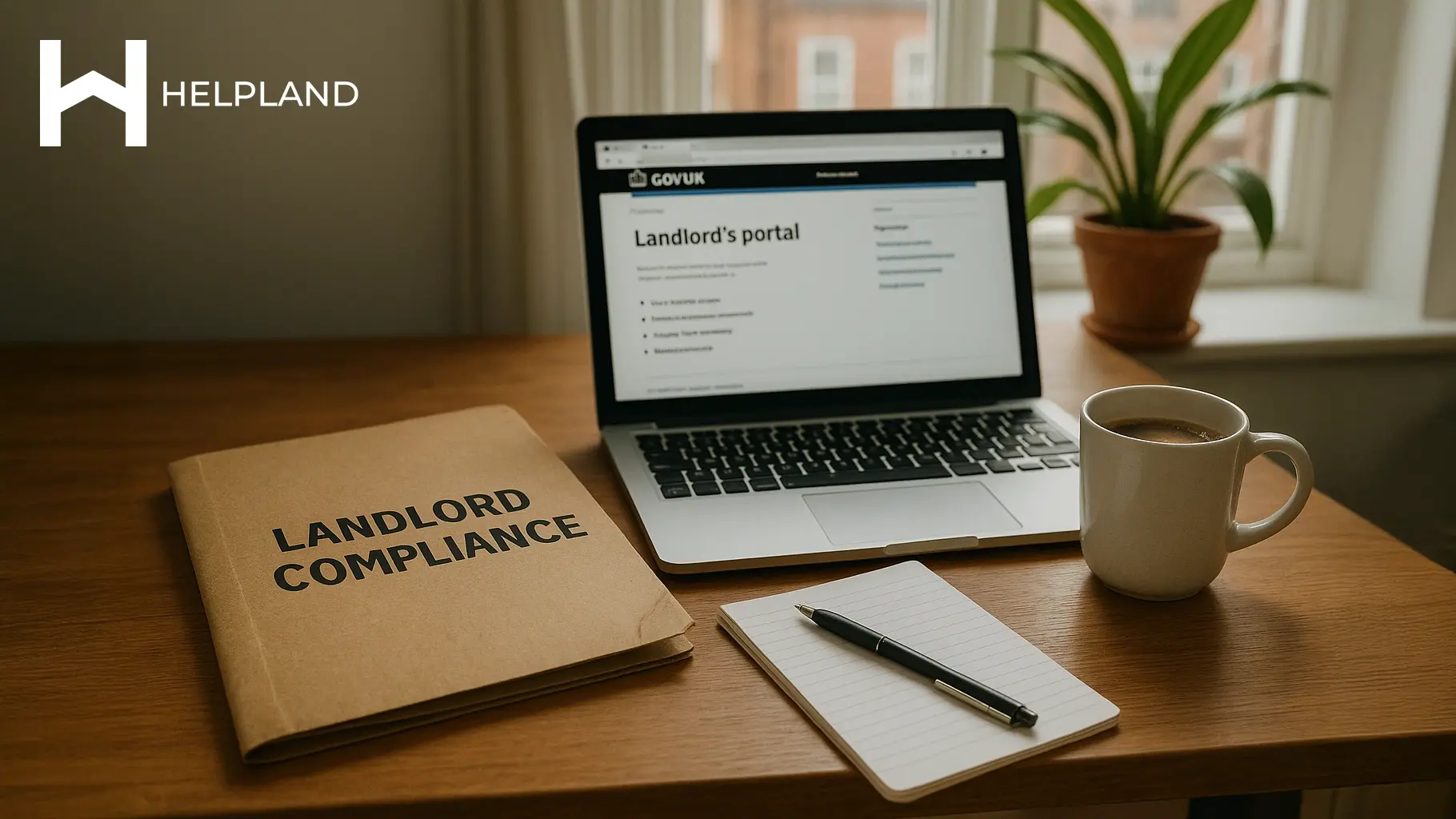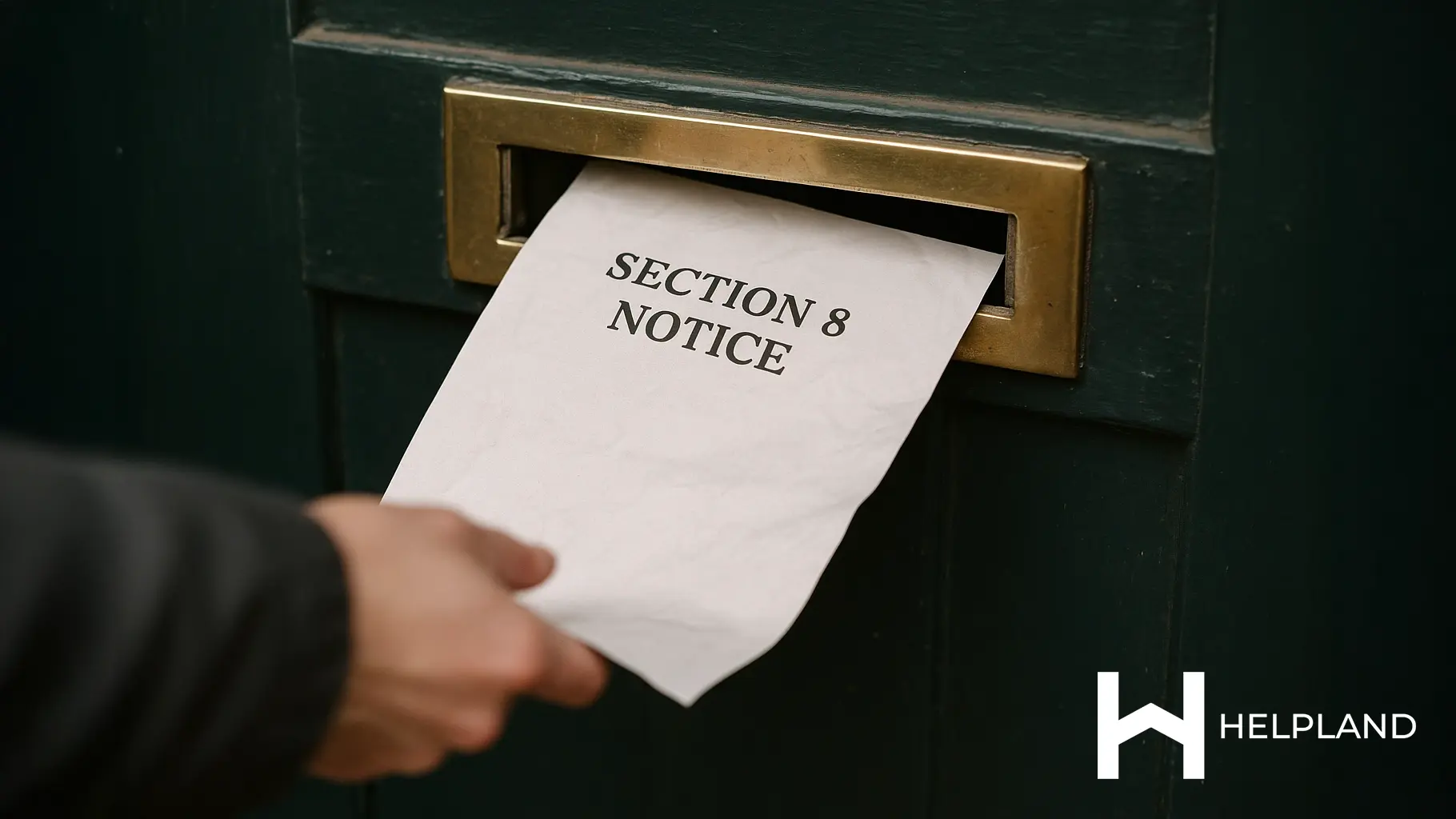The Renters’ Rights Bill is poised to change the way landlords operate, permanently.
With the planned 2026 rollout, this legislation introduces sweeping reforms that don’t just eliminate Section 21. It reshapes tenancy law, compliance obligations, and landlord responsibilities across the board. For landlords, it means this: you’ll need to prove you’re compliant before you can even think about serving notice.
This blog breaks down what’s coming, and how Helpland’s tenant eviction packages are already designed to help you stay ahead of the changes.
Fixed Terms Are Ending, and Periodic Tenancies Take Over
Under the new framework, all tenancies will become periodic by default. Fixed-term contracts will no longer be the norm, and landlords will need to adjust how they think about both renewals and terminations.
This change doesn’t remove your right to evict, but it does mean notice can be served at any time, provided all compliance criteria have been met. There’s no automatic end-date fallback anymore. It’s about process, not expiry.
For landlords used to operating on 6- or 12-month cycles, this marks a major operational shift, one that requires tighter documentation and readiness.
A National Landlord Register Is on the Way
A digital landlord portal is being launched to create a centralised registry of rental properties in England. Private landlords will be required to submit their property details, compliance documents, and contact information to this portal.
Importantly, access to the register may be tied to enforcement powers. Failing to register could prevent you from legally serving notice or weaken your case in front of the Ombudsman or court.
Helpland is already preparing for this shift. Our pre-eviction readiness review will flag any missing registrations or legal documents once the portal goes live.
Annual Rent Increases Will Be Capped, and Challengeable
Landlords will be limited to one rent increase per year, and tenants will have a formal right to challenge that increase through a rent tribunal.
This isn’t just an administrative detail, it introduces risk. If you raise rent without following the new rules, tenants may refuse to pay or escalate the issue, which can delay any future eviction claim.
You’ll need to justify increases clearly and follow a strict notice process. Helpland ensures your communications and rent-review documentation are aligned with tribunal standards.
Fitness Standards Will Be Tougher, and Enforced
The definition of a “fit and proper” rental property is expanding. Expect new requirements around insulation, ventilation, energy efficiency, and repair responsiveness.
Landlords may be prohibited from serving notice if a property fails updated fitness standards, and tenants will have more ways to report non-compliance through local authorities and the Housing Ombudsman.
Helpland includes fitness compliance as part of our eviction package workflow, helping you resolve risks before they become roadblocks.
The Ombudsman Will Play a Bigger Role in Disputes
All private landlords will be required to join a national Housing Ombudsman scheme. This gives tenants a new channel to raise disputes about rent increases, repairs, poor communication, or how notices have been handled.
Importantly, if a tenant raises a formal complaint, the Ombudsman could delay or challenge your eviction attempt, especially if you can’t show clear record-keeping or fair treatment.
Helpland’s process includes full communication tracking, policy compliance checks, and support preparing your case should the Ombudsman become involved.
Pet Requests Must Be Considered, and Handled Properly
The new law gives tenants the right to request a pet. Landlords must reply in writing within 42 days, and refusals must be based on reasonable grounds, not just personal preference.
You may be required to have pet-damage insurance, or to show why a particular pet presents a legitimate risk to the property. These requests, and your responses, will need to be documented carefully, particularly if a possession claim is ever disputed.
Helpland helps landlords log and structure this correspondence in line with the expected new requirements.
Record-Keeping Will Become a Legal Obligation
Many of the Renters’ Rights Bill reforms rely on proof of compliance, not just intention. If you want to serve notice in 2026 and beyond, you’ll need a clean, well-documented trail that includes:
- EPCs and gas safety certificates
- Deposit protection proof
- “How to Rent” guide issue records
- Communication logs
- Evidence of landlord registration and Ombudsman scheme membership
Missing one of these may prevent a claim from progressing, even if the tenant is clearly in breach. That’s why Helpland’s eviction package includes a full compliance audit and documentation check before we proceed with any notice or claim.
Why Proactive Landlords Are Turning to Helpland Now
The Renters’ Rights Bill isn’t about punishing landlords, it’s about making the system more transparent and enforceable. But transparency cuts both ways. Landlords who are unprepared will face longer disputes, delayed evictions, and even reputational risks in public complaint databases.
Helpland’s tenant eviction service isn’t just about legal notices. It’s about:
- Compliance you can prove
- Processes you can trust
- And evictions that hold up under scrutiny
Our packages already include all the touchpoints needed to comply with the 2026 landscape, from registration checks to fitness reviews and documentation audits.
If you’re planning to serve notice in the next 12 months, now is the time to get your house, and your paperwork, in order.
Explore Helpland’s compliance-ready eviction packages today.
FAQs: What Landlords Are Asking About the Renters’ Rights Bill
Do I need to re-issue How to Rent guides in 2026?
Yes. If the “How to Rent” guide is updated, or if your tenancy transitions to a periodic agreement under the new law, you’ll need to re-issue the guide before serving any notice. Failing to do so could invalidate your eviction claim.
What triggers Ombudsman involvement?
The Ombudsman can step in whenever a tenant raises a complaint about maintenance, communication, unfair treatment, or rent increases. Even if the issue isn’t heading to court, the Ombudsman may require landlords to pause action until the complaint is resolved.
Will existing ASTs automatically convert to periodic?
Yes. Under the new system, all tenancies will become periodic by default, including current fixed-term agreements. You’ll need to treat them as rolling contracts moving forward, especially when preparing to serve notice.
How does the rent-increase cap work?
Landlords can raise rent once per year, but the amount must be reasonable and justifiable. Tenants will be able to challenge excessive increases via a tribunal. It’s essential that any increase is properly served and supported with records.
Which Helpland package covers full compliance?
Helpland’s Tenant Eviction Package includes a full compliance audit, document readiness review, and guidance on new requirements under the Renters’ Rights Bill. It’s built specifically to protect landlords ahead of 2026 reforms.





